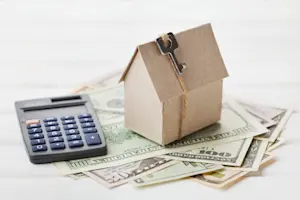
Guide | Budgeting

A homebuyer’s credit rating plays an important role in the buying process. Discover our tips to help you raise your credit score and some factors that can affect it.
If you are looking to get a loan for a manufactured home in the near future, you will want to make sure that you have the best credit score possible. A person’s score affects the amount of money they can borrow, the interest rates that are available to them and even the ability to obtain a mortgage loan. That is why we have come up with these quick tips to help you build and boost your credit rating.
Quarterly credit checks can help you to be aware of any issues that may be keeping your credit score from increasing. You can find your credit information through consumer credit resources, and you can also get a free copy of your credit report. Staying updated about your credit will make it easier to spot any possible mistakes in the report so you can have them corrected.
Check these items for errors in your credit report:

Late or missed payments on any credit accounts, such as credit cards, mortgages and other loans, could result in a drop in your credit score. Making payments on time, making additional payments whenever possible and paying extra toward the principal of your mortgage will also help you develop a good payment history and decrease the time it will take you to pay off the amount owed. Use our Extra Principal Payment Calculator tool to help you calculate the savings that you could see by paying more than the minimum amount toward the principal.
Paying your statement balances in full helps you keep more debt from accumulating and can improve your credit score. Managing your debt and paying it down, along with a better score, can result in lenders being able to offer you better loan terms. Lenders often check a borrower’s credit report when they apply for a loan and measure the amount of debt the borrower is carrying against the loan amount they have requested. Excessive debt is one of the factors that could cause a lender to decline the application for credit.

Credit applications can appear as inquiries on credit reports, which suggest to lenders that an applicant may be taking on additional debt. When shopping, be aware of sales that offer purchase discounts if you apply for a credit card, such as a department store credit card. These could show up as inquiries on your credit report, and inquiries remain on credit reports for two years. Instead of applying for additional credit, consider using your existing lines of credit to demonstrate responsible credit card management by paying bills on time and paying off debt quickly.
A secured credit card, or a credit account with a determined line of credit, is one option for building your credit if you do not already have credit cards or other accounts showing payment history. Your credit line is determined by the required security deposit used to obtain the card and is equal to the credit line. Credit card debt often has the most negative effect on a credit score because it is a consumer debt that is not tied directly to any assets. Having a determined line of credit can help you keep the amount of credit card debt you accumulate manageable.
Building your credit score is the first key to financial success when you’re trying to obtain a manufactured home loan. Using these tips, you can stay aware of your credit score and help improve it step-by-step. To learn more about credit scores, check out Vanderbilt’s guide of credit facts vs. myths.

Guide | Budgeting

Guide | Budgeting

Guide | Home Buying
Stay in the Know
By subscribing, I agree that Vanderbilt Mortgage may contact me by telephone, provide me with marketing communications about Vanderbilt Mortgage products and services, and share my contact information as described in our website terms.